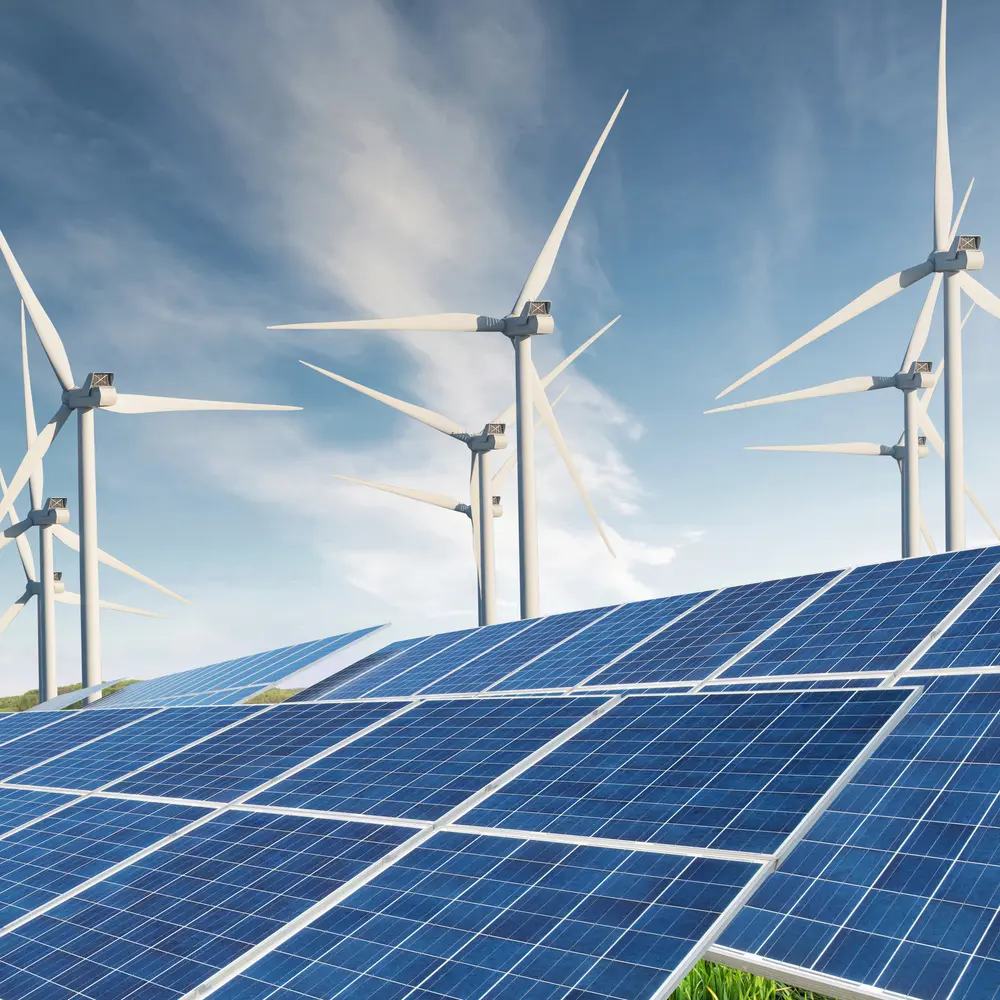Saudi Arabia is leading the world’s shift to clean and renewable energy, marking a noteworthy advancement towards sustainable development.

Saudi Arabia is leading the world’s shift to clean and renewable energy, marking a noteworthy advancement towards sustainable development. The Kingdom has demonstrated its dedication to promoting an environmentally sustainable future through a number of calculated partnerships, large-scale initiatives, and investments.
Saudi Arabia’s advanced infrastructure and increasing investments in renewable projects are propelling it to the forefront of the clean energy movement.
The Kingdom has sealed significant deals with Azerbaijan, Kazakhstan, Kyrgyzstan, and Uzbekistan, signaling its intent to expand energy corridors across the region. Collaborations with South Korea, exemplified by a $5 billion deal with Hyundai Engineering and Construction, showcase the Kingdom’s dedication to international partnerships in the pursuit of sustainable energy solutions.
To attract global companies interested in advanced clean technology, Saudi Arabia has invested billions in developing high-tech innovation hubs. The Kingdom is currently spearheading 13 renewable energy projects, including the colossal 2.6 gigawatt Al-Shuaibah solar plant. Additionally, a joint venture with ACWA Power, Air Products, and NEOM aims to establish the world’s largest green hydrogen production facility.
Saudi Arabia is actively working towards environmentally friendly corridors connecting Europe and Asia. Recent agreements, such as the memorandum of understanding with the US to create intercontinental green transit corridors, underscore the Kingdom’s commitment to facilitating sustainable transportation solutions.
In a groundbreaking initiative, Saudi Arabia is progressing with NEOM, the world’s first city without roads. This visionary project, supported by a $10 billion joint venture with Denmark’s DSV, aims to revolutionize urban infrastructure. NEOM Green Hydrogen Company’s recent receipt of wind turbines signals tangible progress in this transformative endeavor.
Recognizing the need for a gradual shift from hydrocarbons, Saudi Arabia remains committed to oil production, a cornerstone of its economy. However, the Kingdom’s investments in renewable energy projects and infrastructure signify a proactive approach to economic diversification and sustainability.
Saudi Arabia’s commitment to combating climate change is evident in its efforts to advance green energy. The creation of environmentally friendly corridors, cooperation with the US on green transit initiatives, and the focus on renewable electricity and clean hydrogen underscore the Kingdom’s dedication to global climate action.
At the heart of Saudi Arabia’s green transition is Vision 2030, one of the most ambitious and comprehensive plans in the modern Middle East. Beyond economic diversification, Vision 2030 encompasses environmental, social, religious, and political reforms. Striving for net-zero greenhouse gas emissions by 2060, the vision positions Saudi Arabia as a key player in the global shift towards sustainability.
Vice Minister of Industry and Mineral Resources for Mining Affairs, Khalid bin Saleh Al-Mudaifer, highlighted Saudi Arabia’s commitment to the transition to green energy in his recent speech. The mining and mineral industries strategy addresses critical challenges, including financing for exploration, availability of geological data, and the promotion of innovation for sustainability and productivity.
Saudi Arabia’s multifaceted approach to clean energy, coupled with Vision 2030, is propelling the Kingdom to the forefront of the global sustainability movement. As a powerhouse in the clean energy sector, Saudi Arabia’s commitment to innovation, international collaboration, and environmental stewardship is setting a transformative example for the world.